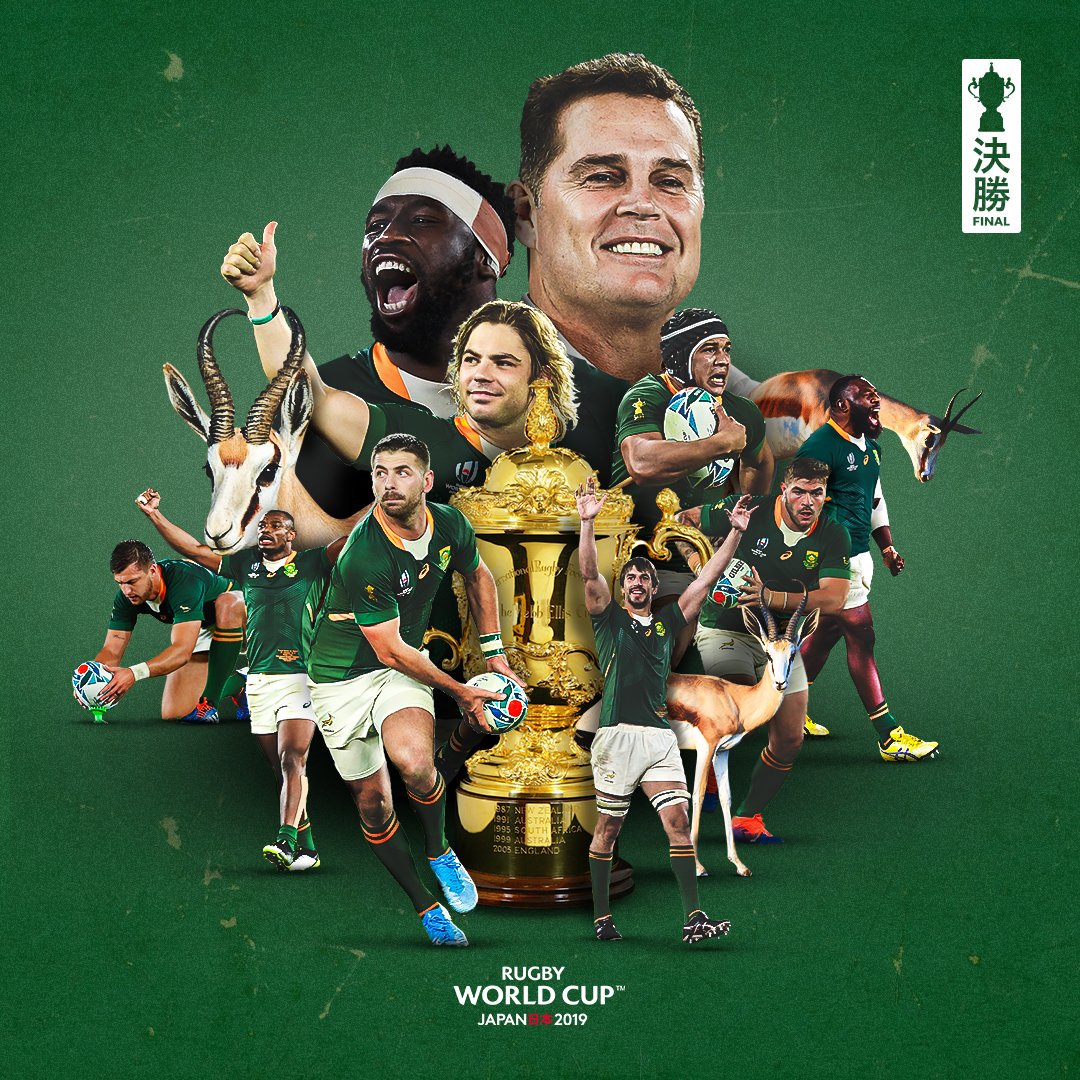The economy is on its knees, our politicians are endlessly sniping and crime remains the go-to topic around the water cooler.
Thankfully, we have the Springboks who this weekend contested the rousing World Cup final in Japan. For a few weeks, they allowed us to be joyful and to bask in the fraternal warmth generated by grand events like these. The feeling will soon pass, but let’s hold onto the thrills and memories while we can.
That’s the thing about Rassie Erasmus and Siya Kolisi who in tandem rebuilt a team that was in tatters. They gave us back our mojo.
Bob Dwyer, the legendary Australian coach, always said that rugby was simple: “When they’ve got the ball, smash ‘em. When we’ve got the ball, smash ‘em.”
If only.
In South Africa, rugby has never been that simple, not with its tangled history and cultural differences.
Which is why Erasmus and Kolisi deserve only praise. It’s a good thing the coach enjoys a challenge. When he was handed the reins, Springbok rugby appeared to have fallen off the cliff.
Yet in Kolisi he saw a man who could help mend the broken squad and make a real dent in transforming the game.
Erasmus brought clarity to the position; Kolisi brought single-minded purpose. If the flanker had to be a pioneer while doing the dirty work at the bottom of a ruck, so be it. He took on the responsibility and adorned the Springboks with quiet dignity and resolution.
South Africans united around Kolisi and, perhaps for the first time, all of South Africa truly embraced the Springboks. That in itself was a triumph beyond measure.
 If the rugby wasn’t always pretty, it was violently effective; a means to an end. As Erasmus explained this week, the priority was to restore a winning mindset. Attractive rugby could come later. The Boks had to find their groove and their history dictated that they do what comes naturally: opt for route one and bang down the door.
If the rugby wasn’t always pretty, it was violently effective; a means to an end. As Erasmus explained this week, the priority was to restore a winning mindset. Attractive rugby could come later. The Boks had to find their groove and their history dictated that they do what comes naturally: opt for route one and bang down the door.
Swys de Bruin, the former assistant, had advocated an attacking game, but once he slipped away for reasons still unknown, those ambitions were parked, with the handbrake up.
The Boks won’t win any prizes for aesthetics, but the graph is pointing north after a year of growth and rejuvenation. Many players grew into their roles, Erasmus remarking that the mediocrity of old had been cast off. More significantly, the Boks won back their reputation as tough guys, not the tactical misfits of recent years.
Next season they will recalibrate and build on a rock-solid foundation. Several of this squad won’t be around in 2023, but the British and Irish Lions will tour SA in 2021 so the work won’t stop.
Whether Erasmus will be the guy holding the whistle next season is moot. As director of rugby, he’ll continue to be hands-on regardless, no doubt looking to embellish the gains of the past two years.
South African rugby is well set. The junior ranks are bursting with promise with players like Salmaan Moerat, Wandile Simelane, Damian Willemse and Joseph Dweba destined to push the old guard hard next season.
Finally, a word for the charming Japanese: Omedetō!
For organisation, resilience, setting, drama and theatre, this may have been the best World Cup of all. – © Sunday Tribune

